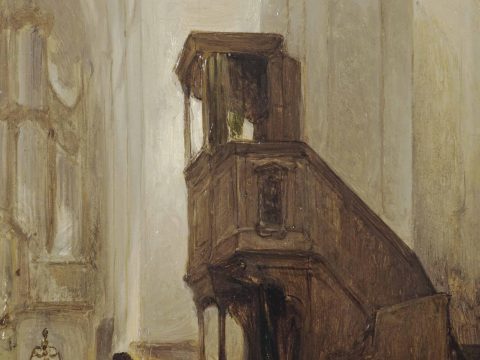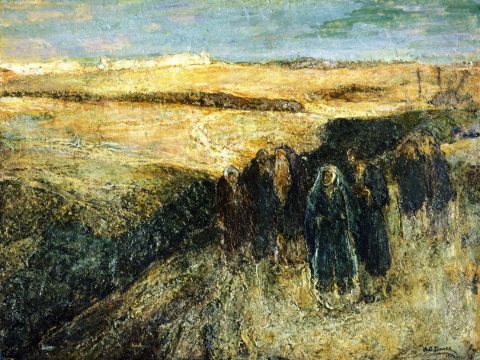
The Immortality of the Soul Proved from,
- The testimony of conscience.
- The knowledge of God.
- The noble faculties with which it is endued.
- Its activity and wondrous fancies in sleep.
It is true, indeed, that men cleaving too much to the earth are dull of apprehension, nay, being alienated from the Father of Lights, are so immersed in darkness as to imagine that they will not survive the grave; still the light is not so completely quenched in darkness that all sense of immortality is lost. Conscience, which, distinguishing, between good and evil, responds to the judgement of God, is an undoubted sign of an immortal spirit. How could motion devoid of essence penetrate to the judgement-seat of God, and under a sense of guilt strike itself with terror? The body cannot be affected by any fear of spiritual punishment. This is competent only to the soul, which must therefore be endued with essence. Then the mere knowledge of a God sufficiently proves that souls which rise higher than the world must be immortal, it being impossible that any evanescent vigour could reach the very fountain of life. In fine, while the many noble faculties with which the human mind is endued proclaim that something divine is engraven on it, they are so many evidences of an immortal essence. For such sense as the lower animals possess goes not beyond the body, or at least not beyond the objects actually presented to it. But the swiftness with which the human mind glances from heaven to earth, scans the secrets of nature, and, after it has embraced all ages, with intellect and memory digests each in its proper order, and reads the future in the past, clearly demonstrates that there lurks in man a something separated from the body. We have intellect by which we are able to conceive of the invisible God and angels – a thing of which body is altogether incapable. We have ideas of rectitude, justice, and honesty – ideas which the bodily senses cannot reach. The seat of these ideas must therefore be a spirit. Nay, sleep itself, which stupefying the man, seems even to deprive him of life, is no obscure evidence of immortality; not only suggesting thoughts of things which never existed, but foreboding future events.
John Calvin. The Institutes, 1.15.2.



